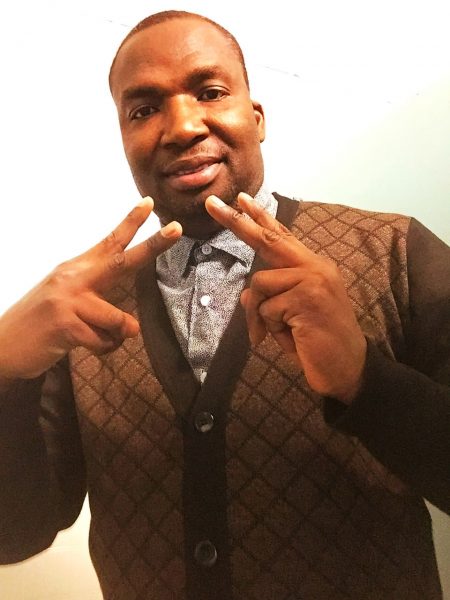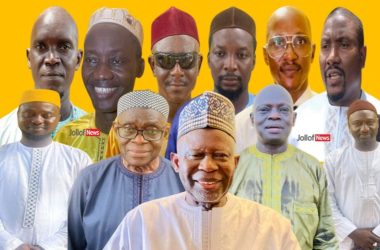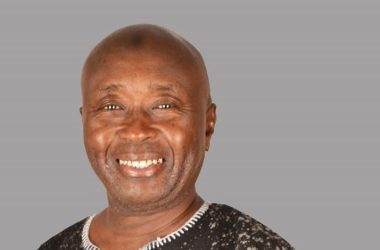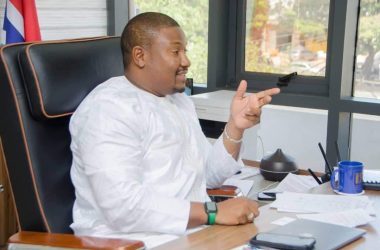
(JollofNews) – “I studied three areas in my education “people, money and countries”. I am a graduate of Economics, Diplomacy & International Relations, and Public Administration.
Regardless of my education in these areas, I am yet to fully understand “people, money and countries”. Unlike other things, people, money and countries change. People change attitudes; money fluctuates, and countries change territorial boundaries. It is very hard to precisely predict these three things: people, money and countries. Because of their unpredictability, they can cause instability and conflicts.
As individuals, we have to be mindful of these three things. For any nation to develop and exist, it has to know how to manage its people, money and territory. This can be done through political maturity and education”. By Musa Manneh
“This is not a scholarly article. It is just a situational analysis based on the political history of both countries, Senegal and The Gambia.”
Gambia @ 52 years Senegal @ 57 years
The French word “Le Grand” means “Senior” in the English language. It is a name given to Senegalese by Gambians. I am not surprised by the reason why Gambians call Senegalese as “Grand”. By its meaning and connotation behind it, it is proper that we Gambians call them “Grand or senior”. The Senegalese meet all the requirements and qualifications to assume the name “Mon Grand”.
The population and land surface of Senegal is bigger than The Gambia. The population of Senegal is almost 16 million, and the land surface is 76,000 square miles. The Gross Domestic Product per Capita is $1046.59, and the Gross Domestic Product (GDP) is $14.9 billion. The life expectancy in Senegal is 63.2 years.
The population of The Gambia is nearly 2 million, and its land size 4127 square miles. The Gross Domestic Product per Capita is $322.44; and its GDP is $284.1 million. The life expectancy in The Gambia is 51.9 years. The Gambia is an enclave inside of Senegal; meaning The Gambia is engulfed by Senegal. Economically and territorially, our Grand, Senegal, deserves respect from The Gambia.
Regardless of the difference in size and population, The Gambia and Senegal share the same cultures and languages. We are the same people, hence, the name Senegambia. We look alike; and we wear similar clothes. We eat the same “Thieboudienne or Benachin”; and we dance to the same music, Mbalax. Their musicians are our idols, our musicians are their idols. The only different in the “Thieboudienne” is that the Senegalese one has more ingredients less rice, while The Gambian one has less ingredients and more rice. Lol. You be the judge if you once lived in both places. This is reason why the Senegalese presidents tend to be skinnier than the Gambian presidents.
“You be the judge by comparing Abdou Diouf to Yahya Jammeh”. Lol. May be it is the same reasons why the Gambian presidents tend to stay in power more than their Senegalese counterparts. Hahaha. My apology fellow Gambians.
Whether true or false, the statistics are there to prove my statements. Does this relates to the political maturity of the two countries? My facts are not empirical evidences from any scholarly journal, but a personal observation; and situational analysis of political maturity in Senegal compared to that of The Gambia. These facts are my own observations, I may be right or wrong. My analysis is triggered by the recent political impasse in The Gambia, and the current controversial online (radios and newspaper) debates on the future of the country.
Before analyzing the political maturity of the two countries, I will like to look into the education level of the citizens of the two countries. I wish that I can use one name for both countries, Senegambia; but due to colonial error, the two countries were separated from birth. One became French speaking and the other English. By all evidence, the blood that runs in Senegalese, it is the blood that runs in Gambians. “Cela veut dire le sang qui coule dans les Senegalais, c’est le meme sang qui coule dans les Gambiens. On est de meme famille”. We are one big family.
In terms of education, Senegal has more intellectuals than The Gambia, in all academic fields. Senegal was the center of education for the French colonies. It has one of the first university in Black Africa. The University of Cheikh Anta Diop and other institutes of higher education produced high class scholars who became global leaders and academicians in their various countries. On the contrast, The Gambia is just catching up in the field of higher education.
The Gambia never had any university until in the late 1990s. Gambians had to go to foreign countries to earn university education. This does mean that The Gambia did not have intellectuals; my point is that Senegal was exposed to modern and western education long before The Gambia. It was well exposed to liberal democracy and politics before The Gambia. The Senegalese politicians and intellectuals were serving in French Government and Parliament long before The Gambia had its own Parliament and Government. I am not going deep into the comparison, I just want to show you the trend in the education which impacted the political maturity of the two countries. To further justify that, I want to show the current education indicators on Senegal and The Gambia.
According to recent statistics from various sources in 2015, literacy rate of Senegal is higher than that of The Gambia. The literacy rate of Senegal for the total population is 57.7%, male 69.7%, and female 46.6%. Literacy rate in The Gambia for total population is 55.5%, male 63.9% and 47.6%. The educational level, of any country, has positive correlation with its political maturity. Higher education is essential for political maturity and democratization. There are all indications that Senegal is on the right path of democratization and political maturity compared to The Gambia.
The definition of political maturity is matter of personal opinion, in this analysis. For me, political maturity is politicians being responsible enough to serve the people first before themselves. The interest of the nation comes first and foremost. The will of the people is always respected. There is a peaceful transition of government from one leadership to another. The political maturity transcends all tribal, ethnic, religious, racial and gender biases. It means people, of such countries, are “GRAND” enough to make objective and rational decisions not based on tribe, ethnicity, religion, race and gender. Everything is democratic, and the will of the people respected. National debates are geared toward societal and economic growth. In other words, the issues of importance are national growth and unity.
In comparing the political maturity between Senegal and The Gambia, I will use the “Reign of Office” of each president. It is my measure of analysis. I will call it “Musa’s Barometer”. Reign of office, in this context, means the number of years spent in presidency. Senegal has four presidents since independence; and the total number spent in office is 56 years. The first President, Leopard Sedat Senghor, spent 20 years in office; the second Abdou Diouf 19 years; the third Abdoulaye Wade 12 years, and the fourth Macky Sall 5 years for now. Since independence, The Gambia has three presidents; and the total number of years spent in office is 51 years.
The first President of The Gambia, Sir Dawda Jawara, spent 29 years; the second Yahya Jammeh 22 years; and the third Adama Barrow 1 month for now. The average reign for presidency, in Senegal, is 14 years; and the average reign for The Gambia is 25.5 years. We can also look at the percentage of the total reign in office for each President, since independence. In Senegal, President Senghor ruled 35.71% of the time, Abdou Diouf 33.93%, Abdoulaye Wade 21.43%, and Macy Sall 8.93% for now. In The Gambia, Sir Dawda Jawara ruled 56.86% of the time, Yahya Jammeh 43.14%, and Adama Barrow (0 % for now). By reporting these figures, it is obvious that Gambian Presidents overstayed in office more than the Senegal Presidents. The Gambia outnumbered the Senegalese both in terms of average reign score in office, and individual president’s number of years in office. These figures are indicators of political maturity and democratization process, according to Musa’s Barometer. The political maturity and democracy in Senegal is higher than The Gambia. Meaning Senegal is more politically mature and democratic than The Gambia.
This political maturity is manifested in the political transition periods both in Senegal and The Gambia. In Senegal, the political transition of power is peaceful. The transfer of power from one president to the other was always smooth and stable. It was never about tribal politics, religious politics and political parties. Once there was a change of government, the institutions continue as they were before. There is always continuity. In The Gambia, the political transition of power is difficult. Transfer of power from one president to the other is marred by conflicts and constitutional changes. It has been unstable. Today, it seems to be characterized by tribal politics, gender biases, religious and political interests. In The Gambia, it seems the institutions are not strong enough to combat “negative (low) scores” on Musa’s Barometer.
In order for The Gambia to catch up with “The Grand” Senegal, The Gambia needs to increase its political maturity and democratization process. In Senegal, anyone can be the president, regardless of your ethnic, religious, gender and tribal origins. The First President of Senegal, Senghor, came from a minority group; and he was a Catholic who ruled a predominantly Muslim country. The ethnic and religious card never worked in Senegal, “C’est le pays d’abord”. One is Senegalese first, and always Senegalese after. There was never a military coup in Senegal (not any successful one that I know about). The Military, in Senegal, knows where it belongs; and the security personnel respect the rule of law. The fundamental human rights of the people are respected. There is freedom of press and expression. No one is above the law. Senegal is a democratic and free society. The reasons behind these strong institutions are political maturity and the educational level of the citizens.
In conclusion, I will advise my fellow Gambians to adhere to the principles of democracy and promote education in our country. It will be helpful when we follow the footsteps of our “GRAND” Senegal. I attended University of Cheikh Anta Diop, Dakar. It was there that I started my undergraduate studies; and it was there that I understood the importance of institutions of higher education. By then, The Gambia had no university. It was there that I saw “Les Syndicats (unionists)” demonstrating against certain policies of the government, without being arrested. It was there that I saw students going on strikes, without being shot at. It was there that I saw the opposition parties sharing airtime on national television, without any threat and harassment. It was a time when The Gambia did not even have a television station. It was there that I saw many political parties participating in democratic process, without being terrorized by a particular president. It was there that I saw the incumbent presidents losing to an opposition party leader, without any political impasse (nearly putting the country on fire “au feu”). This is what I call “GRAND”.
To be “Grand”, you have to get that maturity and seniority in life; it helps to do the rights in the right way. For now, Mon “Grand’ frère” Senegal is doing the right things in the right way when compared to The Gambia. It has a vibrant democracy, and it has tolerance in all aspects of human development. Senegal is for national unity and patriotism. This is the reason why I call Senegal “Big Brother”. Please Gambia, “you don’t have to be like your big (senior) brother, but you can always follow his good footsteps.
Long live Senegambia
Long live Senegal
Long live The Gambia
Long live the Big Senegambian Family
By Musa Manneh
New Jersey, USA




